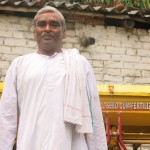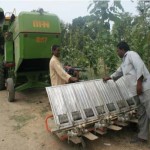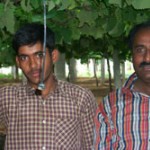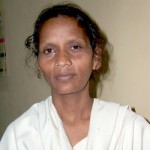
For Indian farmers like Nathuni Singh, climate change has become a stark reality. Summers are searing ahead of schedule in north India, where wheat growers in Bihar and eastern Uttar Pradesh can lose 25 percent of their crop harvest.
In Bangalore, India’s information technology hub, 72 percent of the drinking water is contaminated and a majority of the population does not have access to clean drinking water facilities.

Ramavadh is a progressive landowner farmer in Eastern Uttar Pradesh. With limited access to extension services, he depended on resource-intensive traditional agricultural practices that did not substantially increase his yield.

Krishnappa is a small farmer in a rural district of the south Indian state of Karnataka. He received assistance from a USAID-supported program to switch 3.25 acres of his 6.5 acre plot from flood irrigation to drip irrigation. This improvement reduced the use of his electric water pump from 84 hours to 25 hours a week.

Women in India who are living with HIV/AIDS are burdened not only by the disease, but also by the stigma associated with it. Sadly, many of these women never thought they were at risk of contracting HIV/AIDS — their husbands passed it on to them.








Comment
Make a general inquiry or suggest an improvement.